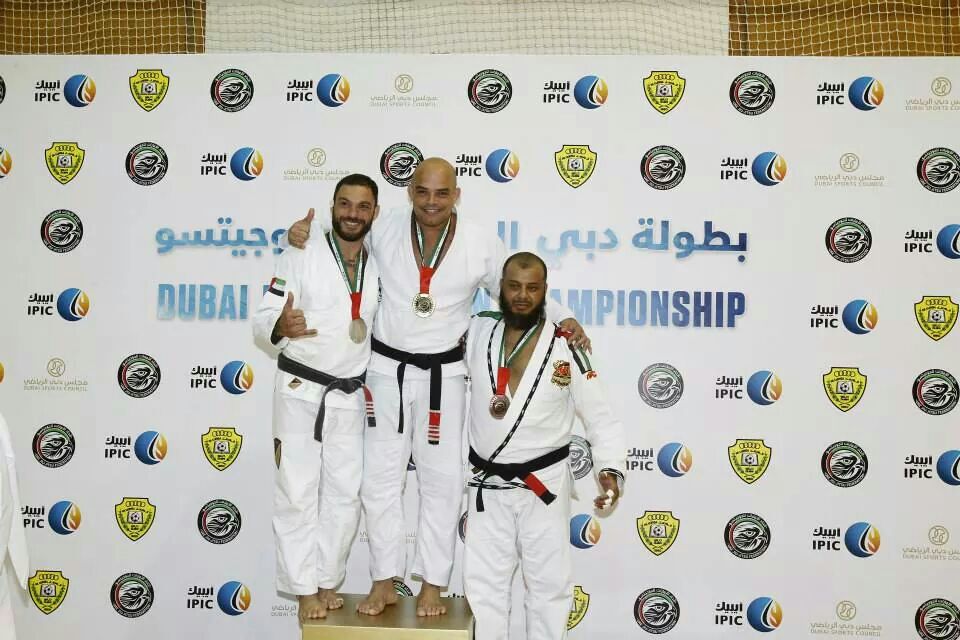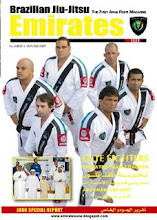sábado, 24 de abril de 2010
Como surgiu a saudacao "oss"? How the greeting "oss" come about?
A definicao do famoso "oss" tem muitas origens. A primeira delas e a definicao do "oss" como abreviacao da palavra Onegai Shimassu, que se traduz como um pedido, uma solicitacao, um convite como "por favor", "por gentileza" ou "com licenca", muito utilizado para convidar o companheiro de treinos a lutar.
A segunda definicao de "oss" tambem conhecido como "ossu" (nao faz diferenca como se escreve em portugues), significa Oshi Shinobu, cuja ideia (pois a traducao ao pe da letra nao condiz com o contexto) e a de "perseverar enquanto se e empurrado", ou seja, nao desistir jamais, ter determinacao, disposicao e suportar o mais arduo dos treinamentos. Continuar sem desistir, sob qualquer pressao - toda aquela ideia de forca interior, tipica da cultura oriental.
Por isso, no inicio da luta, o artista marcial grita, invoca, emana o "oss", como forma de liberacao desse sentimento, muito embora em muitas fontes, o "oss" seja definido como uma manisfestcao da energia ki, ou seja, um kiai ( forca) diferente, indicando que ja se esta pronto para a luta.
Segundo Miyamoto Musashi, no livro " Go rin no sho"(Livro dos cinco aneis), existiam tres tipos de gritos utilizados pelos samurais: um antes do combate, para mostrar energia; o segundo durante o combate, na hora de atacar, para obter mais forca (o kiai); e o terceiro depois da luta, para comemorar a vitoria ou urrar a derrota.
O "oss", alem de demonstrar o espirito de forca e a determinacao antes da luta, e tambem utilzado para indicar ou confirmar uma informacao, assim sempre que o Sensei perguntar ou informar algo, responde-se: "Oss!". Uma resposta que indicara o entendimento ou a confirmacao do entendimento.
-----------------------------------------------------------------------------------------------------------------
The famous "oss" has many origins. The first is the definition of "oss" as an abbreviation for Onegai Shimassu, which translates into a request, a solicitation, an invatation like "please", "if you may" or "with your permission", much used when inviting a partner to train.
The second definition of "oss", also know as "ossu" (it doesn't matter how you spell it in English), means Oshi Shinobu, which conveys the idea ( the literal translation has nothing to do with the context) of "persevering when pushed", or in other words, never give up, have determination, grit and withstand the most arduous of training. Carrying on without giving up, under all kinds of pressure - that's the idea of inner strenght so common in oriental culture.
Therefore, at the start of a fight, the martial artist will shout, invoke, emanate the "oss", as a way off letting this sentiment out. In many sources, "oss" is defined as a manifestation of ki energy, or in other words, a different kiai (strenght), indicating one is ready to fight.
According to Miyamoto Musashi, in the book"Go rin no sho"(Book of the five rings), the samurai would use three types of shout: one before combat, to demonstrate energy; the second during combat, when attacking, to muster greater strenght (kiai); and the third after the fight, to celebrate victory or bemoan defeat.
"Oss", beyond demonstrating strong spirit and determination before a fight, is also used to suggest or confirm a piece of information. Thus, whenever a Sensei asks or informs of something, the response is "Oss"! Its is the response that will signify understanding or confirm understanding.


















(1)_-_Copy.jpg)